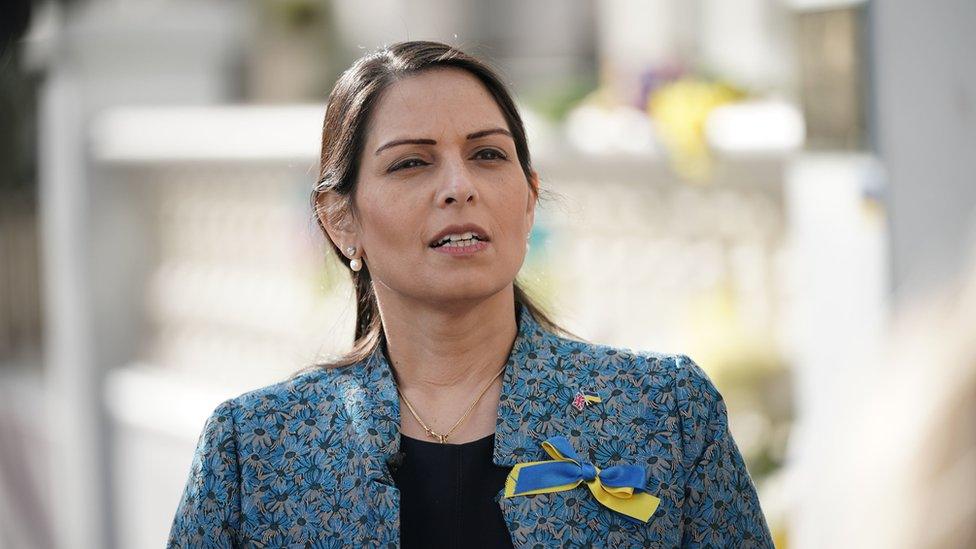Priti Patel admits migrant phone seizures were illegal
- Published

Home Secretary Priti Patel admitted the phone seizures were illegal
The home secretary has admitted mobile phones were taken illegally from migrants as they arrived in Dover after crossing the Channel on small boats.
Three migrants have won a High Court challenge against the Home Office after they were arrested separately after being intercepted off the Kent coast.
They were picked up between April and September 2020 and officials took their phones at Tug Haven in Dover.
Judges ruled that the asylum seekers' human rights had been breached.
They won their case after Ms Patel admitted their mobile phones were unlawfully seized under a blanket policy targeted at migrants crossing the English Channel.
"Her initial stance was that there was no policy of the kind which is now admitted," the judges said.
Data had been unlawfully extracted from two of the devices, and the phones were not returned to the migrants for months.

Judges said the seizure of the asylum seekers' phones violated their rights.
The three asylum seekers, one of whom lawyers said was "a potential victim of trafficking", brought a High Court claim against Ms Patel challenging the lawfulness of the circumstances and policies under which they were searched.
Following a hearing in January, two judges ruled on Friday their legal challenges had succeeded after "very significant concessions" were made by Ms Patel.
Lord Justice Edis, sitting with Mr Justice Lane, said the home secretary "accepts that the blanket seizure policy meant that, during the times in question, the seizure of the mobile phones of the claimants was not in accordance with the law."
'Non-existent offence'
The judges said the seizure and retention of the asylum seekers' phones "violated" their right to family and private life under the European Convention of Human Rights.
They also said demanding the phones' PINs from the migrants was "without any lawful authority" and "using a threat of prosecution for a non-existent offence to enforce the demand" was a clear breach of the asylum seekers' human rights.
The Home Office conceded a version of the policy that required phones to be retained for a minimum of three months was unlawful and capable of a "disproportionate interference" with human rights and data protection legislation.
The department also admitted that a practice of officers requiring migrants to provide their phone PINs was unlawful.
The judges said a further hearing should be held to decide the "consequence" of the successful claims.
A Home Office spokesperson said: "We are considering the judgement and it would be inappropriate to comment further at this stage"

Follow BBC South East on Facebook, external, on Twitter, external, and on Instagram, external. Send your story ideas to southeasttoday@bbc.co.uk.